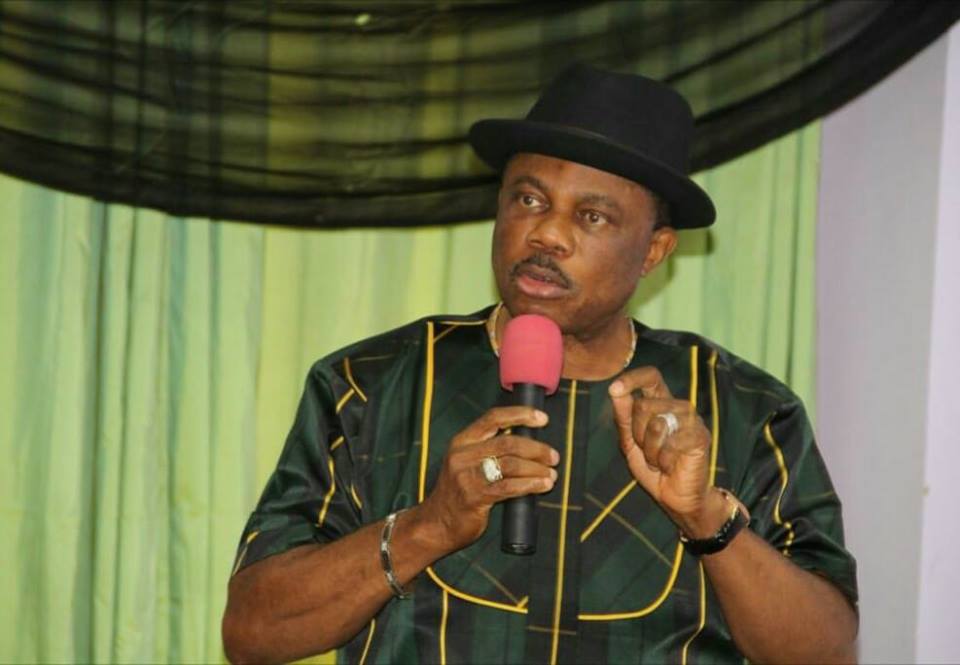By James Eze
Something historic will happen in Awka on Monday May 21st this year. Ndigbo from the five South Eastern states and their kit and kin in Rivers and Delta will gather in their numbers at the Alex Ekwueme Square to take a position on ‘Restructuring,’ the dominant question in Nigeria today.
It would be the first time the Igbo would hold such an epic meeting anywhere outside of Enugu, the political capital of the eastern region. It would also be the first time Awka would be hosting an expanded gathering of Ndigbo in recent memory. So, the event carries a huge weight for Ndigbo and even a far greater weight for Ndi Anambra. It is a measure of the growing stature of the governor of Anambra State in the reckoning of his people that a Summit that will determine the position of Ndigbo on an issue of national importance is to be held in his domain. But it is also a clear indication of the admirable flexibility of the leadership of Ohaneze under Chief Nnia Nwodo that Anambra is given the chance to host Ndigbo.
So, as Ndigbo gather in Awka, the entire Igbo nation waits with baited breath for deliberations that will address the age old Igbo fears and suspicions about their country. It is a frightening irony that while the Igbo have individually enjoyed a warm relationship with compatriots from other ethnic nationalities within the Nigerian federation, Ndigbo as a nation have had a troubled affair with Nigeria. The irony strikes one speechless when one remembers that the struggle for Nigeria’s independence benefited immensely from the intellectual firepower of prominent Igbo nationalists who spared no efforts in agitating for independence and made remarkable compromises shortly afterwards to give Nigeria a fighting chance as a new Independent state. But the Igbo have felt shortchanged by Nigeria with her flawed structural balance which has skewed economic and political powers in favour of other geo- ethnic groups and left Igboland grasping for the short end of the stick that even appears elusive. This deep-seated feeling of denial and alienation has ratcheted up strong emotions among Ndigbo, leading to the fanciful academic slogan known as the ‘Igbo Question.’
The Igbo Question is a niggling intellectual inquiry into the Igbo condition since the Civil War. But the Igbo Question has since made a swift transition from a fanciful academic slogan to what favourably compares to the famous ‘Jewish Question’ which led to the evolution of the ‘Zionist Ideology’ that ultimately culminated in the emergence of the Jewish state in 1948. Until 1948, the Jewish Question was essentially a prolonged debate on the Jewish condition and heart-wrenching treatment in Europe and across the world in the 19th and 20th centuries.
Just like the Jews of the era who were pegged back mostly by their lack of an inspirational political leader who would represent the face of their quest for a better deal from the rest of humanity, Ndigbo appear restrained by the absence of an authentic and universally acclaimed political leader whose very life would approximate their aspiration for a better bargain from Nigeria. Will the Awka Summit finally throw up such a figure? I don’t know.
Be that as it may, anyone who is familiar with the Igbo would know that the absence of a charismatic political leader may be a huge advantage but it has never stood in the way of reaching a consensus or drawing an action plan among them. The Igbo culture is deeply rooted in consensus building and the advancement of the society without the overarching presence of an all-knowing ruler. So, there’s a great deal of hope that all the delegates drawn from the five states of the South East and the Igbo-speaking people in Delta and Rivers states know exactly what the occasion demands and will rise to this historic moment.
In the meantime, Ndigbo are looking forward with expectation to this Summit for so many reasons. The first is that at the moment, no other political office holder enjoys the same rating with Governor Willie Obiano of Anambra State. With his stellar performance in his first term in office, many Ndigbo believe that whatever Obiano is involved in must be of great importance to the people. So, there is a great deal of hope arising from Obiano’s credibility among the people just as there is in the belief that Anambra is a very important Igbo State that should be in the forefront of any serious effort to re-position the Igbo in Nigeria.
The second reason for hope is that for the first time in a long while, Southern Nigeria and a sprinkle of allies from the Middle Belt appear to have realized that it is in their ultimate interest to come together and push for a better Nigeria. To this end, the highly successful ‘Handshake Across the Niger’ which attracted representatives from this geo-political block in January this year, may have done a great job of wetting the ground for the Igbo Summit.
So, as Ndigbo gather in Awka this Monday, there’s hope that whatever the Igbo want from Nigeria will be given a fair chance to stand beside the demands of other ethnic groups in the country. But the greater hope might in fact be that the question President Buhari had asked in the heat of recent agitations by self-determination groups when he said, ‘what do the Igbo want?’ will be finally answered by the largest gathering of Ndigbo in recent memory.
James Eze is the Chief Press Secretary to the Governor of Anambra State, Willie Obiano and could be reached via email: (eziokwubundu@gmail.com).
Send your news, press releases/articles to augustinenwadinamuo@yahoo.com. Also, follow us on Twitter @reportersinfo and on Facebook on facebook.com/primetimereporters or call the editor on 07030661526, 08053908817.

